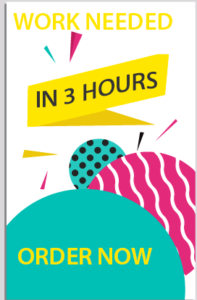Health-care: social media marketing campaign
Health-care facilities must develop marketing plans to attract patients to their facilities in an increasingly competitive field. As with most industries, the marketing of health-care services requires some astute planning and a clear focus on the objectives of the campaign. However, the objectives of health-care marketing campaigns must go beyond those used to other products.
Health-care campaign objectives
A major objective of many health-care marketing campaigns is to educate patients about serious health conditions, such as, heart disease and diabetes, and how to avoid getting them. Health-care facilities often promote their services through free or discounted health screenings for conditions as high blood pressure, diabetes and high cholesterol. Additionally, the screenings allow patients to increase their understanding of these conditions and how to take preventive measures. The hospitals can also demonstrate their skills in dealing the patients who have such conditions. One of the most effective campaign is through social media platforms.
Benefits of using social media marketing campaign
Raise awareness
Social media is a key way to raise public awareness about new, emerging, and annual health concerns. Sometimes raising awareness is as simple as reminding followers about common sense health practices or addressing common healthy living concerns. But when things are changing fast, social media is a key way of ensuring the public is aware of the latest issues, guidelines, and advisories. One way to get the information out there is to share information directly in social posts. Raising awareness about credible sources makes it easier for your followers to counter inappropriate healthcare social media claims they see in posts from their own social connections.
Combat misinformation
Social media by their very nature help spread information quickly to diverse groups of people. That’s great when the information is fact-based, helpful, and clear. Unfortunately, there’s also a lot of health misinformation on social networks. Sometimes the misinformation comes in the form of untrue statements. These are relatively easily debunked. You can simply cite published research or the latest information from a credible health source like the CDC or WHO.
Crisis communication
More people now get their news from social media than from newspapers. Consequently, that makes social a key place to share breaking information. As the COVID-19 situation develops, people turn to government health officials. They’re looking for the latest information and instructions. For instance, Canadian provincial medical health officers have used social media and healthcare communication effectively. They are regularly sharing official status updates and restrictions during this time of crisis.
Answer common questions
Health authorities and other organizations working in the healthcare field are a valuable source of information about all kinds of health concerns. Social tools offer creative ways for healthcare professionals to address common questions. For example, the government of India developed a Facebook Messenger chatbot. It can answer questions, direct citizens to the right resources, and counter misinformation.
Public health monitoring
People post about everything online, including their health. Hashtags like #flu can reveal when diseases are popping up in new locations. Public health organizations can even get a sense of the severity of symptoms.
Patient support
It should be noted, nearly 40% of young people (ages 15 to 25) have used online tools to connect with others with similar health challenges. That includes social media groups. That connection can have real benefits for patients. Researchers published in the journal surgery created a Facebook group for 350 liver transplant patients, caregivers, and healthcare providers. A full 95% of survey respondents said that joining the group had been positive for their care. People also use social media to raise funds for treatment.
Research recruitment
Social networks also offer an opportunity to connect with potential study and survey participants. Like brands, researchers and healthcare organizations need to understand social media demographics. This allows you to connect with the right audience. It’s also important to know how to target social media ads.
Marketing
Undoubtedly, social media is one of the most effective platform for marketing. There are many social media platforms available today that can promote marketing. For example, Instagram, Facebook, YouTube among others It covers a wide range of people and also very cost effective.
Objectives of a social media campaign
- Raise awareness of services offered by a health care facility
- Educate patients about serious health conditions, such as heart disease and diabetes, and how to avoid getting them.
- Identifying new patients in the target population
- Growing the brand. Demonstrating how the facility can deliver the best technology and the best patient experience at the best price for the target market.







